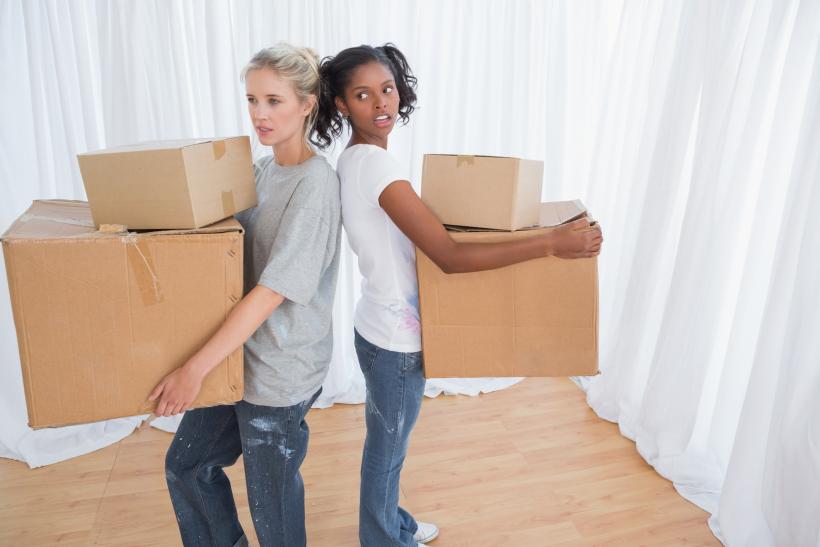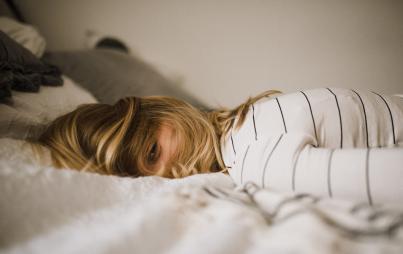
I’ve found that adulting is all the more important when you’re in a shared living situation. Image: Thinkstock.
Because my disabilities zap my energy from the get-go, I prefer to conserve as much of what I have as I can by spending time with myself and more deliberately choosing when I do hang out with others.
Let’s clear the air first: I’m 29 years old and, like many Millennials, I currently live with my mom.
I don’t want the title to mislead anyone. I’m not quite where I want to be just yet.
However, in addition to the traditional college dormitory experience, I’ve also had the chance to spend about two years living in Brooklyn, New York, living with roommates. I most certainly have never made enough to afford living in New York (or anywhere else, for that matter) on my own.
I also grew up with what essentially amounts to roommates. I lived with my mom and younger brother. For about a year and half, during my transition from elementary school to middle school, we doubled up with my aunt and cousins.
Talk about a full house.
And just as living with other people has, inevitably, always been a part of my life, so has my utter disdain for doing so.
Don’t get me wrong: I like people. Just about anything I’d enjoy doing alone — from concerts to restaurants — I can also enjoy doing with company.
However, I’m an introvert (more precisely, I’m a strongly introvert-leaning ambivert). Combine that with being multiply disabled, and you can begin to understand how hanging out with or being around people on a regular basis can be energy-depleting.
As an introvert, I’m not against hanging out, I don’t hate people, and I’m certainly not “antisocial” — a psychiatric term that often gets misused.
All it means is that spending time with others becomes energy depleting and that I gain my energy not from interactions with others, but from interactions with myself.
Because my disabilities zap my energy from the get-go, I prefer to conserve as much of what I have as I can by spending time with myself and more deliberately choosing when I do hang out with others.
When you have a roommate, you don’t have the power to make them disappear so that you can temporarily have the whole place to yourself. You kind of just have to hope that you get lucky enough for them to go out of town for a while (which rarely ever happens).
And it’s nothing personal. While I’m not chummy with everyone, I’ve never had any serious issues with past roommates, whether they’ve been friends, family, or someone I found on Craigslist or something. I consider myself really lucky in that way; I know there are horror stories out there.
But, having lived with my mom on Long Island for almost a year now, I’ve realized just how much of a burden it can really be.
Jokes about “adulting” seem to be all the rage on social media these days, a term coined by Millennials to describe how we are (or aren’t) adjusting to adulthood by attaining and maintaining basic and major benchmarks (taking care of cleaning and other domestic duties, landing a full-time job, arriving on time to work, filing our taxes correctly, getting our own place, etc).
Because so many of these life skills aren’t taught within the US education system, and because of the social and economic uncertainty of both our present and future, I can say with certainty that while generations before us may see these tasks as mundane facts of life, they often seem like real accomplishments to us.
I’ve found that adulting is all the more important when you’re in a shared living situation. Someone else is dependent on you to do your share of the housework, pay the rent on time or otherwise contribute financially, and be considerate of their needs and desires.
Most people don’t want to let others down, but unfortunately, it’s a real possibility that we have to consider. It requires being honest with ourselves, for both our own self-care as well as the well-being of others.
Those are all valid issues when you live with someone. No one should be in constant fear of losing their shelter or living under the constant stress of a messy home or inconsiderate roommate.
And those concerns are precisely why I’d rather live alone.
For many of us disabled folks, taking care of ourselves alone can be a difficult task. When you have chronic pain, sometimes it’s so unbearable that you can barely get around the house, let alone stand long enough to wash dishes or mop floors.
When you’re depressed, just getting out of bed can be an accomplishment — forget about looking for work so you can afford to pay rent.
The guilt of not always being able to properly care for yourself is already pounded into our heads because of our capitalist society, where productivity rules. But that guilt is magnified when you aren’t the only person you have to consider.
Most people don’t want to let others down, but unfortunately, it’s a real possibility that we have to consider. It requires being honest with ourselves, for both our own self-care as well as the well-being of others.
I recall times when I was struggling with depression and wouldn’t leave my room for days, gently being reminded of my commitment to wash dishes. I remember the months I went without actively looking for work, lying in my bed, losing myself and my responsibilities in Netflix, social media, and my own misery.
Even little trips to the grocery store wore me out — to the point that once I got home, I really couldn’t do much of anything else.
It’s tough on its own, worrying about finances, the threat of homelessness or perpetual couch surfing, perhaps even living in filth or with vermin.
For all of my triumphs and accomplishments over the years, I’ve also had many hardships. Right now, I’m in a relatively good patch. I’m working fairly regularly as a freelancer, making money (though not enough to live independently yet). And, while my room is still on the messy side and it’s sometimes still a struggle to get out of the house, the fog of my psychiatric illnesses doesn’t hang nearly as low right now.
But that can always change. And with that change comes a struggle that I’d truly rather not burden others with.
I use the word “burden.” It’s a word that disabled communities often try to avoid, and with good reason. We’re often portrayed as such as the media: burdens worthy of discarding or killing off to make the lives of able-bodied and –minded folks easier. It’s ableist and a new narrative most certainly needs to be carved out.
However, I think our experiences are nuanced.
While I myself am a complex (and awesome) human being and my disabilities aren’t a burden in and of themselves, I recognize that I still have to do that adulting thing I was talking about.
That includes being honest with myself and taking responsibility for the ways in which my disabilities make my life that much harder.
That means recognizing how those things can impact others, being considerate of others’ needs, including their own disabilities (diagnosed or not) and acting accordingly.
And what I’ve come to realize is that, between all of that and my natural inclination toward introversion, the best thing for everyone is for me to just live alone.
Now I only have to wait until I can afford to do just that (har har har).







